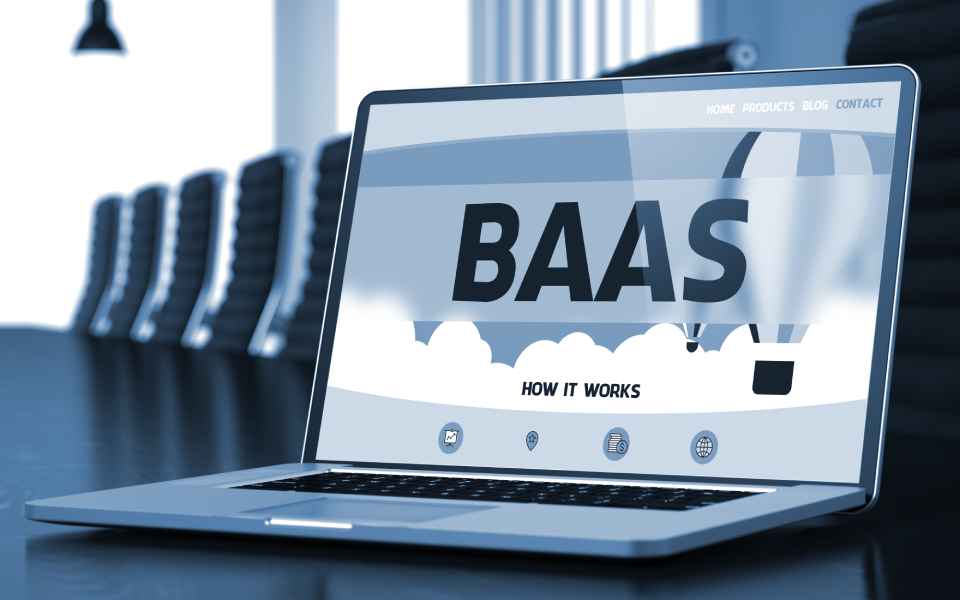Banking-as-a-Service (BaaS) allows businesses, such as fintech companies or other third parties, to integrate and offer financial services (like payment processing, loans, and account management) within their own platforms, without needing to obtain a banking license.
Essentially, a non-bank businesses can partner with a banks and leverage their charter to offer these services, forming what many people refer to as a Neo-Bank.
Banking-as-a-service leverages the established infrastructure and regulatory compliance of partner banks, enabling companies to expand their service offerings, streamline operations, and improve customer experiences.
What Are the Main Benefits of the BaaS Model?
The Banking as a Service (BaaS) model provides a framework that allows non-bank companies to integrate financial services into their products. This approach has several expanded benefits:
- Enhanced Customer Experience: By embedding financial services directly into their platforms, businesses can offer a more convenient and integrated experience. Customers can access banking features such as payments, loans, or savings accounts without needing to leave the platform they’re using, improving satisfaction and retention.
- Quick Market Entry: Traditional banking services often require extensive infrastructure and regulatory compliance, which can be time-consuming and costly. BaaS bypasses this by providing ready-to-use infrastructure and services through licensed financial institutions, enabling businesses to enter the financial services market quickly.
- Focus on Core Business: BaaS allows companies to concentrate on their primary business activities, such as product development and customer service, while relying on the BaaS provider for financial services.
- Customer Growth: This model also creates new revenue opportunities for the financial institutions these fintechs partner with. With the Neo-banks focused heavily on marketing and customer experience, they have the opportunity to drive significantly increased usage of traditional financial services.
At least in theory, this model allows consumers to get access to financial services through modern and innovative ways.
Recent Events Highlighting Issues with this BaaS
More than 100,000 Americans with $265 million in deposits have been locked out of their accounts
The collapse of Synapse, a middleman in the fintech industry, locked over 100,000 customers out of $265 million in deposits, including Yotta users. These customers believed their funds were FDIC-insured, but the Synapse failure revealed gaps in protection, causing significant financial uncertainty.
The situation has sparked a broader scrutiny of the banking-as-a-service model and fintech partnerships. The incident underscores the risks of relying on fintech firms for essential banking services, as they may lack the robust oversight and protections of traditional banks.
Read more: How thousands of Americans got caught in fintech’s false promise and lost access to bank accounts.
Evolve Bank Data Breach Impacts 7.6 Million People
Evolve Bank & Trust confirmed that the personal information of over 7.6 million individuals was compromised in a LockBit ransomware attack. The Arkansas-based financial services organization confirmed the incident on July 1 after the ransomware gang published data allegedly stolen during the attack. The company noted that no ransom demand was paid, which led to the stolen data being leaked online.
Evolve Bank also said that the attackers exfiltrated personal information, including full names, addresses, Social Security numbers, date of birth, account numbers, payment history, employer information, and account balances. The data leak also revealed information on borrowers, lenders, and business partners.
Federal Reserve Board Issues Cease and Desist Order Against Banking-As-A-Service Provider
Evolve Bank & Trust received a cease and desist order from the Federal Reserve on June 14, 2024. The order cited significant deficiencies in the bank’s risk management, anti-money laundering (AML), and consumer compliance practices.
Key Issues Cited:
- Lack of Risk Management: The bank failed to adequately assess and manage risks associated with its fintech partnerships.
- AML and BSA Violations: Evolve Bank exhibited shortcomings in complying with anti-money laundering and Bank Secrecy Act regulations.
- Consumer Protection Failures: The bank’s consumer compliance practices were found to be deficient.
Regulatory Actions:
- Partnership Freeze: The bank is prohibited from establishing new fintech partnerships or offering new products to existing partners without prior approval.
- Enhanced Oversight: Evolve Bank must strengthen its board oversight and develop comprehensive risk management plans.
- Independent Audit: The bank is required to hire an independent third party to review its consumer compliance program.
- Capital and Liquidity Assessment: The bank must improve its capital and liquidity risk management practices.
Fed Crackdown on BaaS Model
The Federal Reserve is increasing its scrutiny of the Banking-as-a-Service (BaaS) model.
This model involves partnerships between banks and fintech companies, where banks provide core banking services to fintechs, allowing them to offer financial products without the heavy regulatory burden of becoming a bank themselves.
Reasons for Increased Scrutiny:
- Consumer Protection: The Fed is concerned about protecting consumers from potential risks associated with fintech products, such as data breaches, fraud, and loss of funds. As we can see from these 2 past examples, the BaaS model, while innovative, is still risky.
- Financial Stability: The rapid growth of BaaS partnerships has raised concerns about the stability of the financial system. Regulators are looking to ensure that banks have adequate risk management practices in place.
- Anti-Money Laundering (AML) and Counter-Terrorism Financing (CTF): The complex nature of BaaS relationships can make it difficult to monitor for suspicious activity, increasing the risk of financial crime.
Ultimately, when banks don’t know who their end customers are and don’t have the ability to monitor transactions, that raises serious concerns. The FED is tightening restrictions on these partnerships and freezing operations for banks that aren’t compliant with regulation.
How Is Finli Different?
Many financial institutions are hesitant to work with fintechs right now, BUT there is a difference between “partner fintechs” and fintechs who want to use their charter for BAAS/embedded banking.
At Finli, we wholeheartedly believe in relationship-based banking and the future of community banks and credit unions, and want to provide FIs with technology to strengthen their customer relationships and grow deposits.
When banks, credit unions, and CDFIs work with Finli, they can offer customers convenient and easy-to-use digital customer experiences and ultimately compete with the fintechs and larger financial institutions offering similar options. Finli helps FIs expand their business services and provide valuable financial tools to their customers.
Our partners stay compliant with Fed regulations and can offer their customers using a modern and secure platform for managing invoices, payments, clients and inventory.




